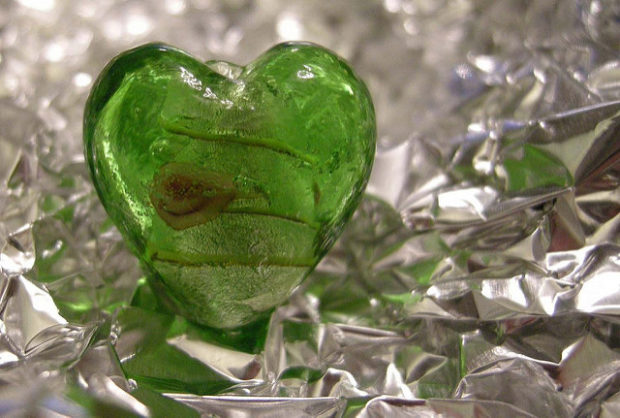The Space Between Anxiety and Depression is Called Gratitude

Like so many others, I’ve had times in my life when I’ve had to deal with anxiety and depression. While it wasn’t nearly as bad as what I’ve seen others struggle with, nonetheless those were not good times. It wasn’t until recently that I got a new perspective on it. And what I now can clearly see is that it’s all about comparisons.
That may sound odd to you. What does comparison have to do with anxiety or depression? Well, it’s about adding in the perspective of time. The past, the present, and the future. And how we constantly compare the present, our “present moment,” to the past and future. Here’s how it works. And what happens when you let the comparisons go.
Depression And The Past
When you think about your past, or more specifically things or events in your past that didn’t turn out as you’d have liked, what’s that feel like? The attached emotions are most likely sadness, regret . . . or depression. And the more you focus on it, the more likely you’ll start to feel depressed.
Underlying all that is comparison. What your present looks like compared to what it might have looked like if things had turned out differently.
But if you stop and consider it, it makes no sense to do that. None of us can change the past. To imagine a bunch of “what might have been” outcomes and compare those to what really is just keeps you stuck in the muck of negative feelings about your life as it is.
Anxiety And The Future
Similar to the way depression is more tied to the past, anxiety is most often about the future. What hasn’t happened yet. If you’re facing upcoming events and worrying about them, the worry begins to feed on itself. And of course, your imagination gives full cooperation by vividly illustrating possible outcomes. What might happen.
Again, what’s happening is an instantaneous and mostly unconscious comparison between now and some imagined future where something terrible has happened. But that imagined future isn’t real.
The good news is there is something to can do to influence your future. You may not be able to control it completely, but you can definitely have a major effect on it. But being fixated on possible negative outcomes does nothing to avoid them. The only payoff is greater anxiety.

Comparisons: The Poison Pill
Benjamin Franklin said that “time is the stuff life is made of.” And there are three parts to time, at least from a human perspective. The past, the present, and the future.
If you can accept that comparisons of reality, our present moment, to either the past or future is what leads to at least a good portion of anxiety and depression, then it makes sense to focus on comparison as the poison that is causing the malady.
Borrowing some techniques from meditation and yoga, start by calming yourself and let go of thoughts of anything other than what is here and now. Focus on what is present in your space right this moment. When there’s no comparison to what might have been or what might be, it’s easier for the calmness to become dominant.
From that place of calmness, gratitude for what is can begin to grow.
The Medicine of Gratitude
While it’s only human to use our memories for references and our hopes for the future to make plans, there is only one place that gratitude can be experienced. Right now, right here. Even when you are feeling grateful for something that happened in the past, the feeling of gratitude resides in the present, not in the past.
Conversely, when you’re completely present in this moment, not the past or the future, it’s easier to make conscious choices about what you’re experiencing and feeling. When anxiety or depression begins to simmer, using gratitude for what is will go a long way towards putting out those fires. When there’s no comparison to what was or what might be, you’re only choice is to embrace what is. And embracing it is just a step away from gratitude.

But what if you turn that around? What if, when the comparisons start to bring on anxiety or depression, or even other unwanted feelings, you used gratitude as the preventative medicine? Try it. In any given moment, once you’ve taken a dose of gratitude, calmed yourself, and cleared your mind, a peaceful contentment will grow. Nurtured, it will flourish. And all of us can use a garden of peaceful contentment.
Love Your Life. Just As It Is.
Comparisons permeate so much of our lives. The past. The future. What someone else has or does or is. It’s a dangerous game to play. Because you can never win. No matter what the subject, the same part of your brain that sets up the comparison is constantly changing the rules of the comparison. And, until you break the pattern, YOU will always come up short.
In “Love Your Life, Not Theirs,” Rachel Cruze presents a much more detailed description of how comparison thinking works against us. While she goes into detail about material comparisons and consumer behavior, she spends the first thirty or so pages specifically on comparison thinking. Those thirty pages alone make the book worth reading. Beyond that, it’s a great expose on how we’re sucked into mindless consumerism by means of comparison thinking.
So rather than waste the priceless moments of your life fretting about what was or what might be, or sad about what was lost, or frustrated about what you don’t have, choose something better. Choose the present moment, choose gratitude. Choose love, and choose to be excited about the adventure of life. It’s here. It’s now. And it is yours for the taking.
Image credits




